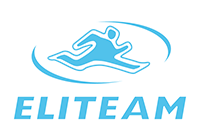This month we’re lucky to have ski racing icon, Barbara Ann Cochran, share the story of her Olympic victory in 1972. The critical moment came between the first and second run. Ultimately, it was her mental game that gave her the gold. Since then, Barbara Ann has dedicated her time and energy to helping athletes build powerful mindsets, so they too can realize their full potential. Below, Barbara Ann recounts her Olympic gold story and gives our ELITEAM athletes a variety of mental training tips and exercises to work on this summer!
Thank you BA! And to all our ELITEAMers… time to grab a paper and pencil!
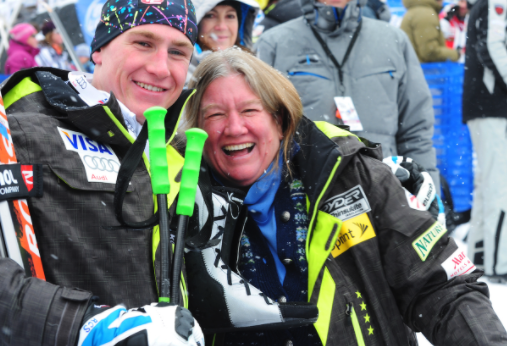
What is Mindset?
By Barbara Ann Cochran:
Mindset is simply one’s way of thinking—what makes someone tick. What does it have to do with ski racing? Everything!
How talented are you? Are you a natural athlete? Good in slalom? Giant slalom? Or are you clumsy and uncoordinated? Are you smart or dumb? Creative? Talented? A leader? A follower? How do you see yourself? Defining yourself like this, can stop you short.
In a fixed mindset, you live for your results. You’re either good at something or you’re not. There’s a lot of pressure to perform. When you don’t get the results you feel you should, you come up with excuses as to why you didn’t do better. You blame the coach, the conditions, the course. Whatever happened, it just wasn’t fair. You obsess over results, worry about how you’ll do, and fear that you won’t achieve what you should. You need to beat so-and-so. Rather than finishing poorly, you quit. You love being the best and fall apart when you’re not.
Whereas, in a growth mindset, it’s all about the process. You can find success in anything you do. You don’t have to be perfect. Mistakes are part of the learning curve. As long as you’re learning from your mistakes, it’s a good thing. You accept challenges. You like competing against someone better than you. It’s okay to be a little fish in a big pond. It’s about improving, getting better at skills you want to master. You don’t have to BE THE BEST; you just try to DO YOUR BEST.
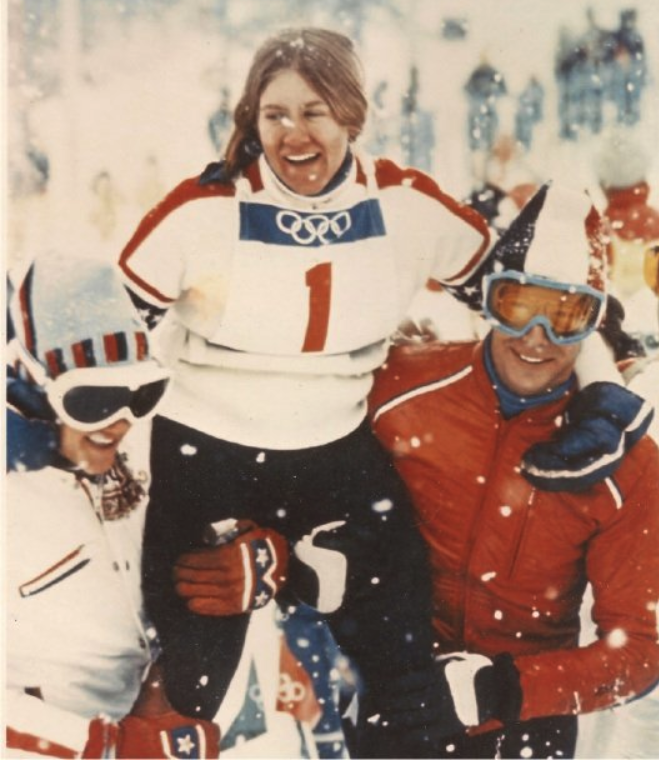
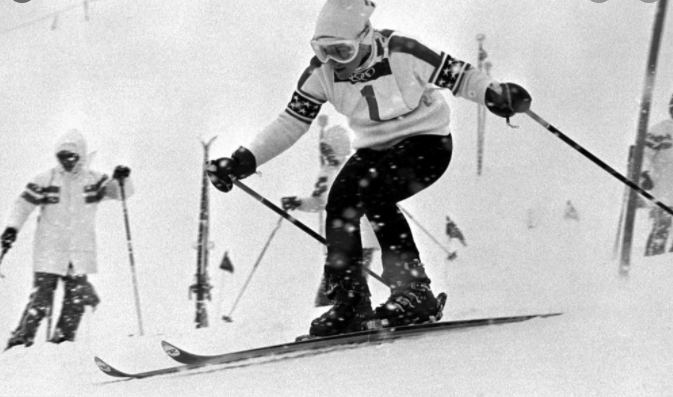
At the Olympics in 1972, in the first run of slalom, I told myself, “Just do the best you can!” I concentrated on putting my best effort into the run. I was in a growth mindset. And I won the first run by 3 hundredths of a second. But that wasn’t the end of the race. I had another run to go.
Going into the second run, I switched to a fixed mindset. All I could think about was winning a gold medal. I thought about the girls I wanted to beat. I worried that I would make a mistake. I stressed that I wouldn’t be able to repeat what I had done first run. With every thought, I could feel myself choking, feel my muscles getting tighter.
As I was inspecting the course for the second run, I realized I would not ski well if I kept thinking this way. I told myself, “Come on B.A.! You’ve got to change how you’re thinking, because right now this is not working!” The first thought I had was, “I’m just going to do the best I can. I will focus on putting my best effort into it because that’s all I can do. And that is enough.”
The second thought I had was, “If the French girls can win, I can, too!” That built up my confidence.
The third thought I had was what my dad had told me two years before at the World Championships. Before the second run, I was getting really nervous, so I went up to my dad and told him that. He said, “I always thought you were the ‘cool cucumber’ in the family!” So I reminded myself that, “I’m the cool cucumber in the family!”
My last thought was, “I’ve already won the first run of an Olympic slalom race. So no matter what happens, I can always be proud of myself for that.” Once I focused on the process and not the results, I calmed down.
The second run I lost by one hundredth of a second, but overall I won by two hundredths. With the growth mindset, I didn’t choke. I was able to just ski.
When you are facing a challenge, check to see if you’re focusing on the results. If you are, change it! Instead, tell yourself, “I’m just going to do the best I can!” Remind yourself, “No matter how this comes out, I can do it. With practice, I’ll get better.” In a growth mindset, you can have fun, no matter how you do!
Fixed Mindset Thoughts
Below are examples of a FIXED mindset. Do you have any of these thoughts when you’re racing? These are the thoughts you want to change.
1. What if I don’t do well!
2. What if I blow it now!
3. What if I make a mistake!
4. I’m going to crush this course!
5. Don’t straddle, don’t hip-check, don’t lean in (or some other mistake you are afraid of making).
6. I’ll never live it down if I lose!
7. I’ve got to do well—my parents are watching!
8. I’ve got to beat ______________ !
9. They’re so much better than I am! I’ll never be as good as they are!
10. I’ve got to finish in the top _____ or I won’t qualify for ___________________ .
My fixed mindset thoughts: (What are some fixed mindset thoughts that you have?)
1.
2.
Growth Mindset Thoughts
Below are examples of a GROWTH mindset. Which ones do you have when you’re racing?
1. I’m just going to do the best I can.
2. I’m going to focus on the skills and let the results take care of themselves.
3. I’m just going to have fun out there.
4. Even if I’m not the greatest today, it won’t be the end of the world.
5. When I make a mistake, I’m pushing myself so I will get better.
6. I love tough situations; the tougher the situation, the better I perform.
7. I’m going to be okay—no matter what.
8. I LOVE _____________(ski racing, slalom, this course, this hill.)
My growth mindset thoughts: (Come up with a few more growth mindset thoughts of your own.)
1.
2.
Rewrite your Story
Growth Mindset Exercise
For an exercise to continue through the summer and fall, think of the times you competed with a fixed mindset. Then rewrite the story—-what could you have thought instead of the fixed mindset thought?
For instance, in the last race before the season ended abruptly because of the pandemic, one of my clients told me about his last race. He was skiing well, but hadn’t been able to finish his slalom races. He would get into trouble, then “hip out” and go out of the course. His coach told him, “This is not the time to hip out!” In the start, he kept thinking, “Don’t hip out! Don’t hip out!” When he got halfway down the course, he made a mistake, which then led him to hipping out and again was not able to finish. To change this, he could have thought about what he wanted to do, instead of what he didn’t want to have happen. He said he would replay it by aggressively weighting the outside ski.
I encourage you to rewrite your stories!
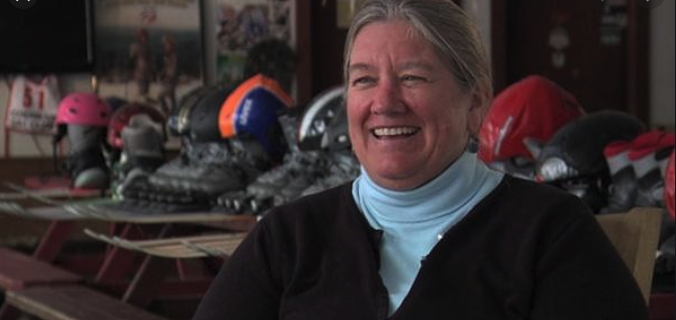
More on BARBARA ANN COCHRAN:
Barbara Ann Cochran is a former World Cup alpine ski racer and Olympic gold medalist. She is the second of four siblings of the famous “Skiing Cochrans” family of Richmond, Vermont, which has operated a small ski area in the backyard since 1961.
Barbara Ann is a sports consultant and motivational speaker with her business, Barbara Ann Cochran Coaching. Her desire is to help athletes, coaches, and parents blossom to the best of their abilities in the world of sports. You can contact her through her website, www.sportssuccesscoaching.com.
Thank you Barbara Ann for the “golden advice”! And to any athletes out there who want to up their mental game this season, we highly recommend that you contact Barbara Ann. Of course fitness and technique are very important in sports, but having confidence, a positive mindset and strong mental skills will absolutely elevate your performance to a whole new level. 100%!

